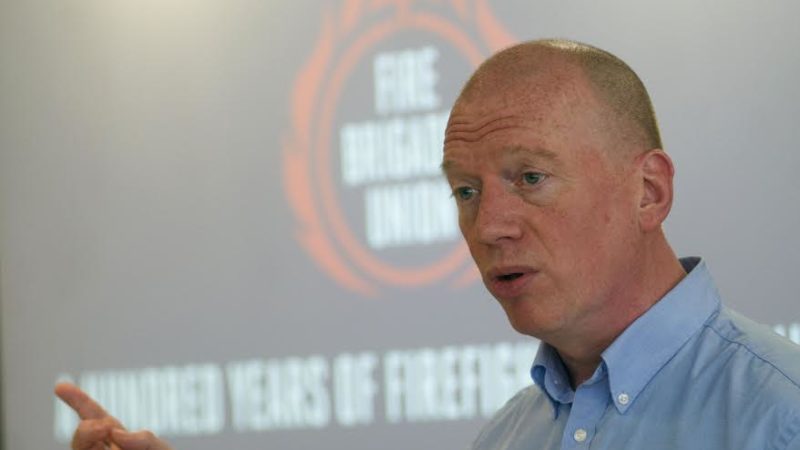
Fire Brigades Union general secretary Matt Wrack has said government plans to further curb workers’ right to strike would be an “outrage in a so-called democracy” and “in keeping with the actions of a dictatorial regime”.
Ministers are reportedly considering restricting or potentially removing the right of ambulance workers and firefighters to take industrial action. Education Secretary Gillian Keegan suggested this morning that health workers and others in “critical infrastructure” could be banned from going on strike.
Commenting on the reports, Wrack said: “Britain already has among the world’s most restrictive anti-trade union laws in the western world. To further restrict the right to take industrial action would be a highly authoritarian move and more in keeping with the actions of a dictatorial regime.
“The Tories are badly misjudging the public mood with these attacks on the pay and conditions of key workers, who kept Britain going during the pandemic. Any attempt to limit the right to strike will be fiercely resisted by the Fire Brigades Union.”
Asked whether she backed banning more professions from going on strike, Keegan told LBC radio: “Well, yes. We do have some areas where strikes are not allowed as part of the contracts, so for example the military can’t go on strike and the police – there’s some people, as a matter of public safety, you can’t go on strike.
“I think what we’re looking at is: are there other areas that we should include in that? Health would be one to look at and other areas of critical infrastructure.” The government minister said she did not know whether teachers could end up being included in the list.
Addressing the Commons on Wednesday, Rishi Sunak said: “If the union leaders continue to be unreasonable, it is my duty to take action to protect the lives and livelihoods of the British public. That is why, since I became Prime Minister, I have been working for new, tough laws to protect people from that disruption.”
The government is expected to set out a package of measures in the new year. Other proposals ministers are reportedly considering include introducing minimum service levels across the public sector, increasing the threshold for strike ballots and lengthening the notice period for strikes.
The FBU announced last week that nearly 33,500 members will be balloted on industrial action after the union’s demands for an increased pay offer were rejected by employers. Wrack described the ballot as “historic” for firefighters and control staff, stressing that members “are rarely driven to these lengths”.
The Public and Commercial Services union announced on Wednesday that Border Force staff at Heathrow, Gatwick and several other airports will take eight days of strike action over the Christmas period.
Ambulance staff across most of England and Wales will go on strike on December 21st in a coordinated walkout by the three main ambulance unions, Unison, GMB and Unite. The action will only affect non-life threatening calls.
The Royal College of Nursing (RCN) announced earlier this month that NHS staff across England, Wales and Northern Ireland would walk out on December 15th and 20th in a dispute over pay.
RCN general secretary Pat Cullen declared that “ministers have chosen strike action” and said nursing staff have “had enough of being taken for granted, enough of low pay and unsafe staffing levels, enough of not being able to give our patients the care they deserve”.




More from LabourList
‘The High Court judgment brings more uncertainty for the trans community’
‘There are good and bad businesses. Labour needs to be able to explain the difference’
‘This ruling should now remove any remaining barrier to approval of EHRC code’